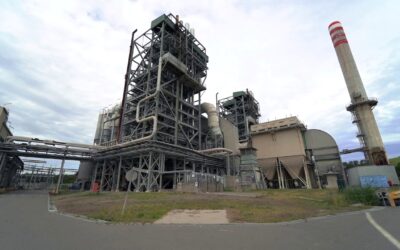Key Takeaways
- 45 State Environmental Planning Policies (“SEPPS“) have been repealed and consolidated into 11 new SEPPS.
- The consolidated SEPPs commenced on 1 March 2022.
- The repealed SEPPs no longer apply to any existing development consents, and the new consolidated SEPPs will now apply.
- Whilst there have been no substantive changes to the contents of the repealed SEPPs, the meaning of certain provisions may have changed or be inconsistent.
Background
On 2 December 2021, the NSW Government announced the creation of 11 new SEPPs for the purpose of simplifying the existing planning policies, by consolidating 45 existing SEPPS to 11 thematic SEPPs in accordance with the Minister’s Planning Principles.
The consolidated SEPPs commenced on 1 March 2022.
What are the Minister’s Planning Principles?
Pursuant to s 9.1 of the Environmental Planning and Assessment Act 1979 (NSW), planning authorities must have regard to the Minister’s Planning Principles in preparing new planning proposals.
In line with that direction, the consolidated SEPPs aim to assist planning authorities by consolidating the various instruments into thematic SEPPs.
The Minister’s Planning Principles are:
- Planning Systems: A strategic and inclusive planning system for the community and the environment.
- Design and Place: Delivering well-designed places that enhance quality of life, the environment and the economy.
- Biodiversity and Conservation: Preserving, conserving and managing NSW’s natural environment and heritage.
- Resilience and Hazards: Managing risks and building resilience in the face of hazards.
- Transport and Infrastructure: Providing well-designed and located? transport and infrastructure integrated with land use.
- Housing: Delivering a sufficient supply of safe, diverse, and affordable housing.
- Industry and Employment: Growing a competitive and resilient economy that is adaptive, innovative and delivers jobs.
- Resources and Energy: Promoting the sustainable use of NSW’s resources and transitioning to renewable energy.
- Primary Production: Protecting and supporting agricultural lands and opportunities for primary production.
Whilst planning authorities must consider these principles, there is currently no direction which requires these principles to be taken into account by planning authorities when drafting planning instruments, policies and guidelines.
What has changed?
In summary:
- The previous 45 SEPPs have now been repealed.
- Each previous SEPP exists as a chapter in the new consolidated SEPPs and has largely been incorporated in their entirety (save for the State Significant Precincts SEPP, which has been split into four of the new consolidated SEPPs according to its relevance to the theme of the SEPP).
- There are no savings and transition provisions in the new consolidated SEPPS, which means the repealed SEPPs no longer apply to any existing development consents.
- The new consolidated SEPPs apply to all previous development applications and consents.
- Whilst there have been no substantive changes to the SEPPs, the meaning of certain provisions may have changed or be inconsistent.
What are the Consolidated SEPPs?
The 11 new consolidated SEPPs are listed below (with links directly to the new SEPPs):
- State Environmental Planning Policy (Biodiversity and Conservation) 2021
- State Environmental Planning Policy (Industry and Employment) 2021
- State Environmental Planning Policy (Resilience and Hazards) 2021
- State Environmental Planning Policy (Resources and Energy) 2021
- State Environmental Planning Policy (Transport and Infrastructure) 2021
- State Environmental Planning Policy (Planning Systems) 2021
- State Environmental Planning Policy (Precincts—Central River City) 2021
- State Environmental Planning Policy (Precincts—Eastern Harbour City) 2021
- State Environmental Planning Policy (Precincts—Regional) 2021
- State Environmental Planning Policy (Precincts—Western Parkland City) 2021
- State Environmental Planning Policy (Primary Production) 2021
For a list of which repealed SEPPS have been consolidated into the new SEPPS, please click here.
Conclusion
The new consolidated SEPPs will hopefully assist developers and planning authorities in ensuring that future developments accord with the Minister’s Planning Principles.
However, due to the consolidation, inconsistencies in the legislation may require interpretation to ensure compliance.
If you have any questions or would like to discuss any aspect of the new consolidated SEPPs, please contact Greg Lee on 02 8235 1254.


